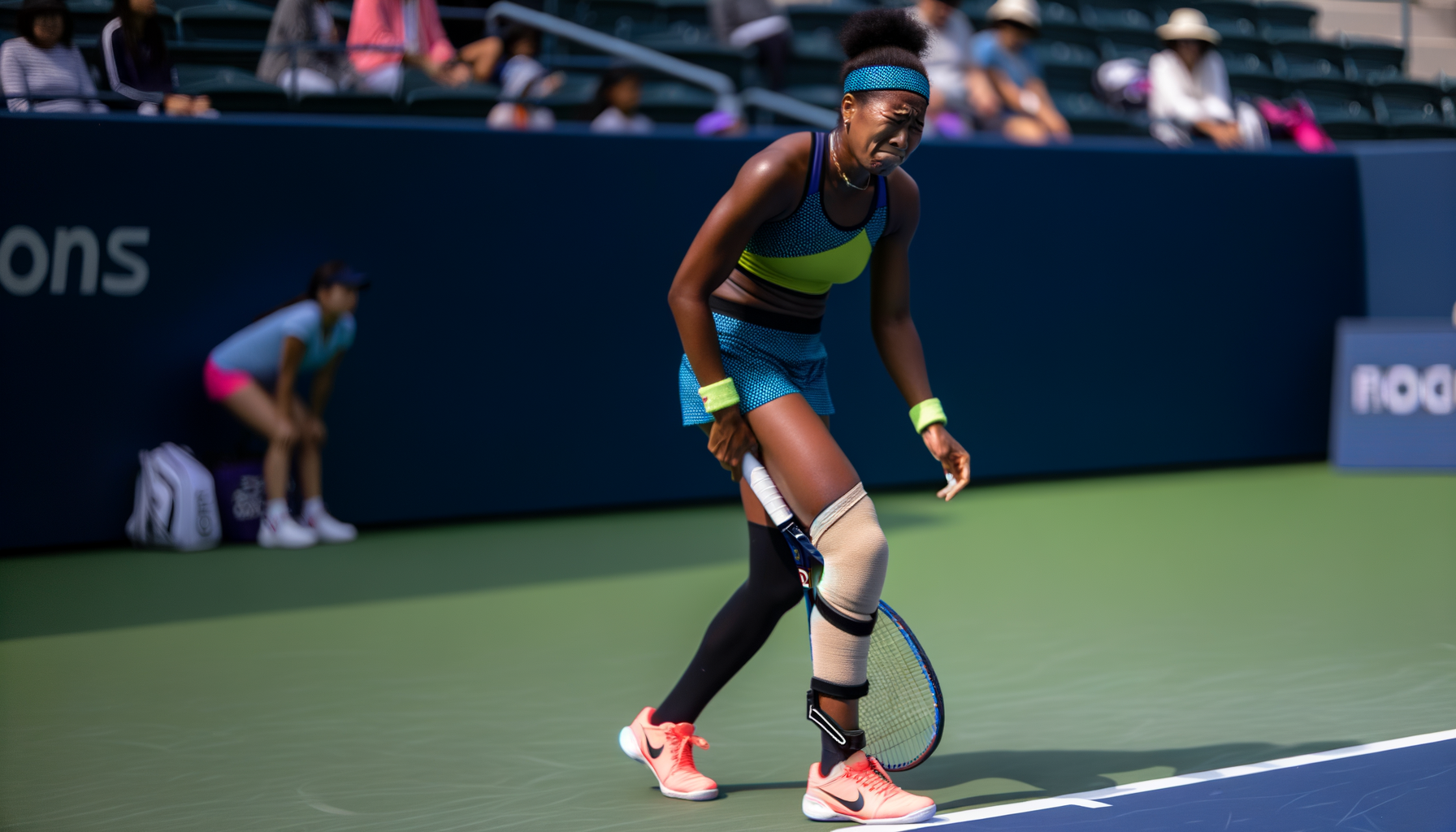Naomi Osaka Withdraws From Japan Open Amid Growing Tennis Injury Concerns
Naomi Osaka withdraws from Japan Open quarter-finals with a leg injury, highlighting a growing list of tennis players facing late-season health issues.

By Editorial
Naomi Osaka's withdrawal from the Japan Open
In a disappointing turn for tennis fans, Naomi Osaka has withdrawn from the Japan Open quarter-finals due to a left leg injury sustained during the second round. The former world number one bravely fought through a gruelling three-set win against defending champion Suzan Lamens but required painkillers and strapping on her thigh to manage the discomfort. Her scheduled match against Jaqueline Cristian was cancelled, allowing the Romanian player to advance automatically to the semi-finals.
The Japan Open organisers confirmed the news on social media, stating Osaka had not recovered sufficiently to continue. This setback casts uncertainty over Osaka's participation in the upcoming Pan Pacific Open in Tokyo, an event where she has historically drawn significant local support.
Late-season injuries disrupt tennis calendar
Osaka’s injury is part of a broader pattern affecting top tennis players as the season nears its close. The demanding schedule and physical toll have led to a series of withdrawals and early season endings. Notably, Iga Swiatek recently voiced concerns about the season's length and intensity, echoing frustrations shared by many professionals.
British number one Emma Raducanu also ended her season prematurely after illness forced her to retire from consecutive matches. Similarly, players like Australia's Daria Kasatkina, Ukraine's Elina Svitolina, and Spain's Paula Badosa have cited injuries or the need for recovery breaks to explain their early exits. At the China Open alone, five players retired injured across two tournaments, underscoring the growing physical strain in elite tennis.
The impact on players and the sport
These recurring injuries raise important questions about player welfare and tournament scheduling. The constant travel, intense match play, and lack of adequate rest periods can jeopardise athletes’ longevity. For stars like Osaka, the pressure to perform at home events adds further stress, making recovery decisions particularly challenging.
The situation also affects fans and tournament organisers. High-profile withdrawals can reduce audience interest and impact ticket sales and broadcasting arrangements. For example, fans of Osaka eagerly anticipated her matches at the Japan Open and Pan Pacific Open, both significant fixtures in the Asian tennis calendar.
How the tennis community is responding
In light of these issues, there is growing dialogue about reforming the tennis calendar to better protect players. Suggestions include shortening the season, increasing mandatory rest periods, and improving medical support on tour. These changes aim to reduce burnout and injury risk while maintaining competitive excitement.
Meanwhile, players are increasingly vocal about their health. Swiatek’s comments reflect a wider willingness among athletes to prioritise wellbeing over relentless competition. This shift could encourage organisers to adopt more player-friendly policies, benefiting the sport’s long-term sustainability.
Case studies of recent player withdrawals
Emma Raducanu’s season-ending decision came after illness forced her to withdraw from two matches, highlighting how even top athletes can be vulnerable to health setbacks. Her situation drew attention across UK sports media, with some comparing it to other high-profile retirements such as those at the China Open.
Similarly, Elina Svitolina’s early season end was due to a combination of injury and mental fatigue, illustrating the multifaceted challenges faced by players. These examples show that physical injury is often intertwined with mental health concerns, emphasising the need for holistic player care.
Looking ahead: What fans can expect
As the tennis season progresses into its final stages, fans should prepare for potential further withdrawals and surprises. The physical demands of the sport mean players must balance ambition with health, sometimes leading to unexpected absences from key tournaments.
For detailed updates on sports fixtures and how to watch your favourite teams, including football and other major events, check out our Sky Sports for EFL fixtures guide. Staying informed helps fans navigate schedule changes and enjoy live coverage without missing key moments.
Conclusion: The need for balance in professional tennis
Naomi Osaka’s withdrawal from the Japan Open is emblematic of a growing issue within professional tennis. The combination of a packed calendar, physical intensity, and the mental strain of competition is taking its toll on many top players. To safeguard the sport’s future, stakeholders must prioritise player health through thoughtful scheduling and support systems.
Fans, too, play a role by understanding the rigours players face and supporting their decisions to rest or withdraw when necessary. While it’s disappointing to miss star players on court, their wellbeing ultimately ensures the longevity and quality of tennis we all enjoy.
For more insights into sports stories and player updates, visit our latest coverage on Jack Leslie’s historic posthumous England cap and other inspiring tales from the world of sport.
Related topics
Editorial
Sports expert at SportsScoop
Specialist in sports analysis and journalism
Related articles
Want to read more?
Explore our comprehensive collection of sports articles and analysis, or contact us for more information.



